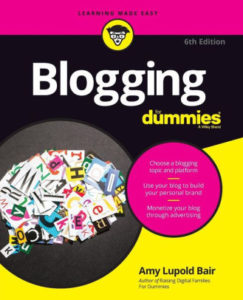Link to Open New Windows for Blog Readers

“Links – you need ‘em,” writes Amy Lupold Bair in Blogging for Dummies. On a blog, the author explains, links are part of the resource you are providing for readers. Collecting links around a topic or theme helps to inform or entertain your blog’s readers. If you’re not only providing good content yourself, but also expanding on that content by using links, she adds, “you’re doing your readers a service they won’t forget.”
As I teach at Say It For You, one way to expand on your own blog content is collating. That entails collecting information from different sources and then organizing that information in a different way. We then summarize those ideas and concepts we think our own readers would find useful.
Curation goes even further than collating. In fact, at Say It For You, we teach that effective blog posts must go from information-dispensing to offering the business owner’s (or the professional’s, or the organizational executive’s) unique perspective on issues related to the search topic. Pieces of information might have been taken from various sources, and might even represent different views. The information needs to be put into perspective so that two things occur:
- Readers relate to the “curator” – you, the author of the blog post – as an involved person who is personally engaged with the subject.
- Readers realize there’s something here that’s important and useful for them.
Now, with links, the piece of material you are curating does not itself appear in your blog, at least not in its entirety. Instead, you’re adding a hyperlink in your text, allowing the reader to click on that underlines text to go to the article, video, text, or webpage.to which you’re referring.
But here’s where Blogging for Dummies offers an important caution to blog writers: You don’t want to be sending your readers away from your site “into the Black Hole of the Internet”. Those readers might click and then forget where they originally found the link! Therefore, Lupold Bair cautions, change the setting to “open in a new window”. That keeps your blog post open on the screen while they pull up the other site.
“Links are the currency of the blogosphere,” the author explains. Adding links to your posts is a good thing, she adds, provided you take your responsibility as a publisher seriously and link only to credible resources. As blog content writers at Say It For You, we certainly agree.
Opening links in new windows literally opens new windows of learning for your blog readers!

 estate consultant) wasn’t about blogging, it might have been. “Position Yourself As An Expert Source”, the title read; the content consisted of tips on establishing one’s credentials.
estate consultant) wasn’t about blogging, it might have been. “Position Yourself As An Expert Source”, the title read; the content consisted of tips on establishing one’s credentials.


Follow us online!